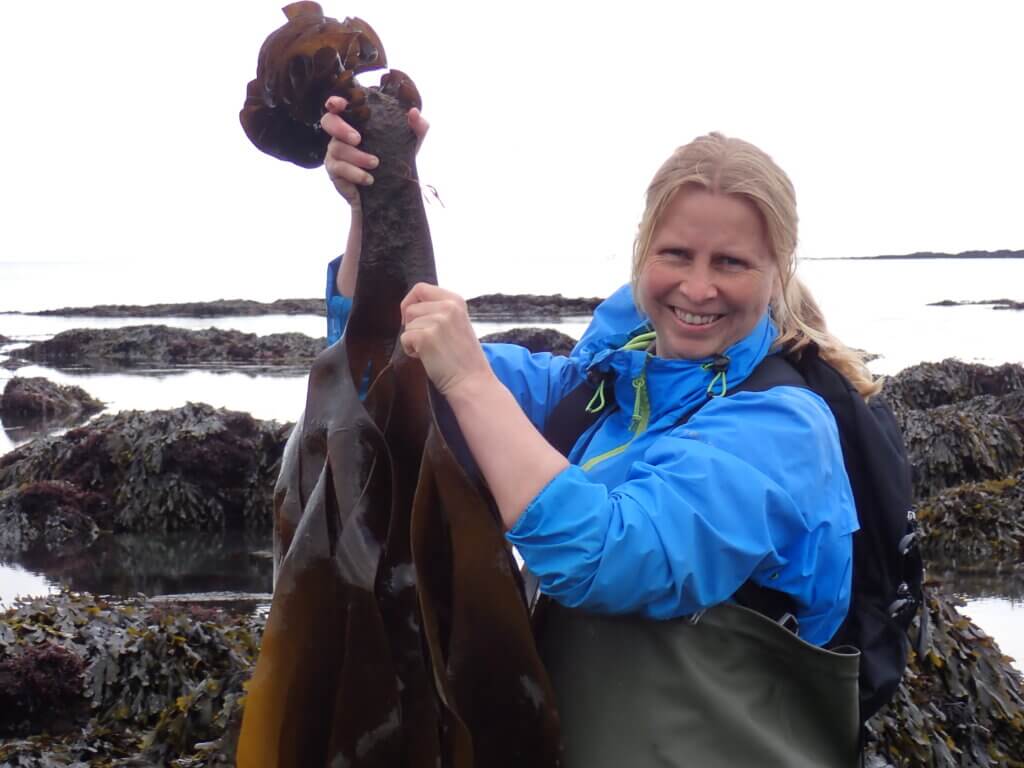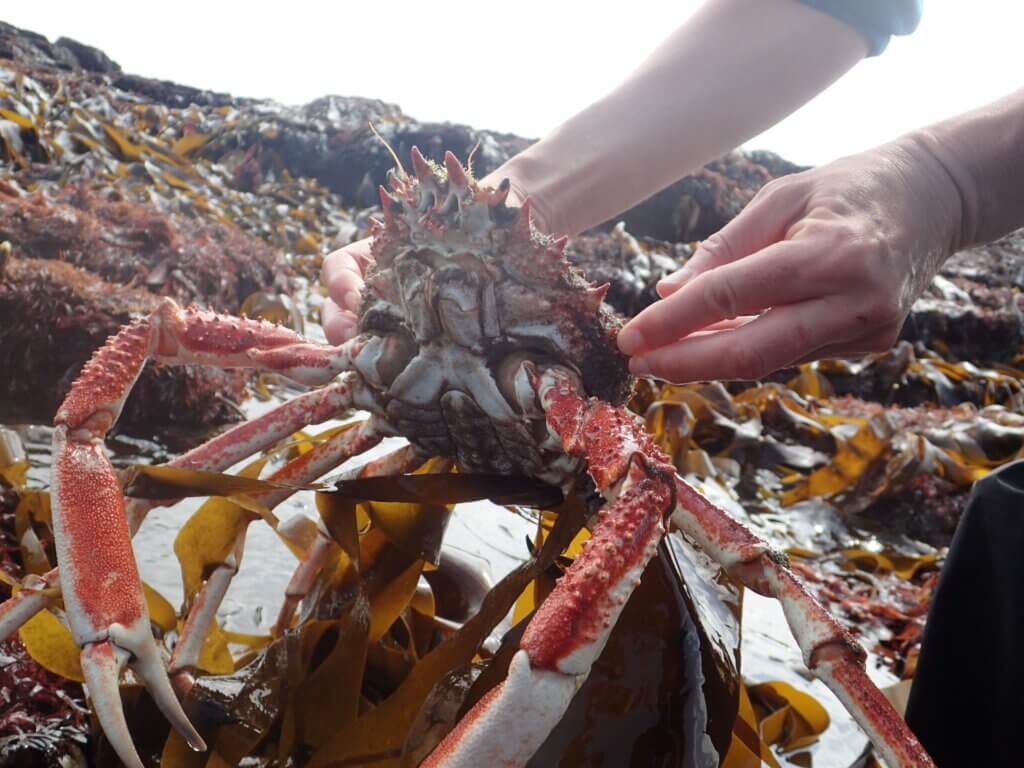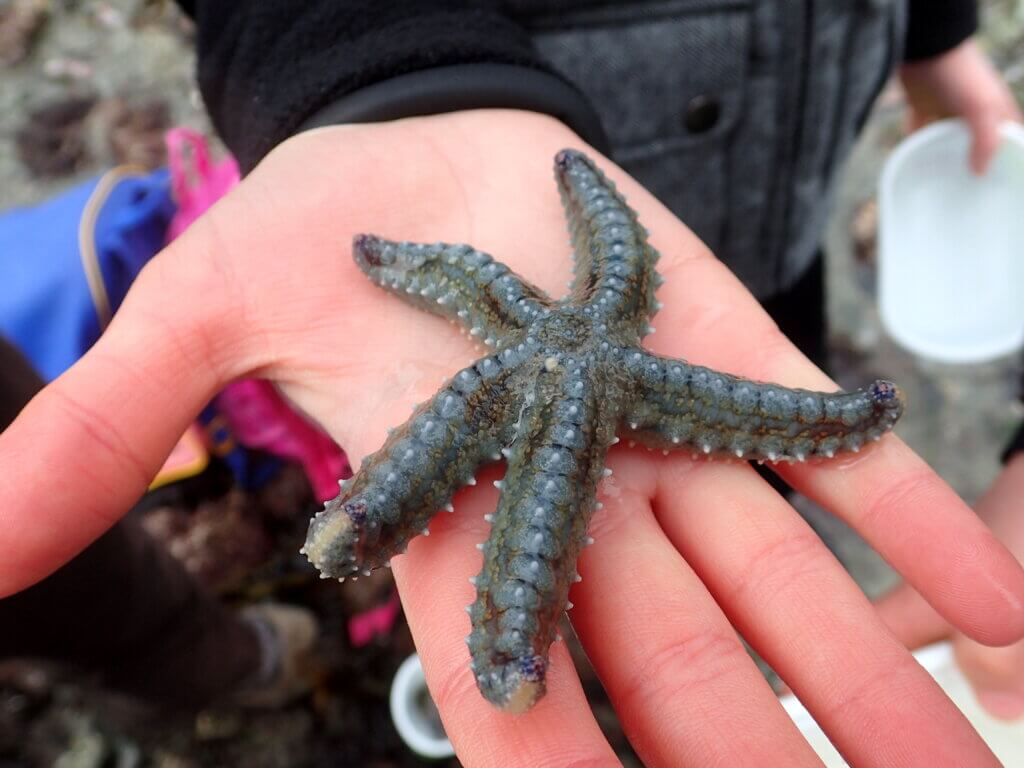
Heather Buttivant is a writer, educator and marine conservationist based in Looe, Cornwall. She specialises in introducing people to the magic of the rock pools. Her first book, Rock Pool: extraordinary encounters between the tides, is available from bookshops and online (and is reviewed here) and her website was named BBC Wildlife Magazine’s Blog of the Year in 2017. Twitter: @CornishRockPool
Re-connecting with Rock Pools
At the height of lockdown, when the lanes and beaches of Cornwall were largely empty, my son spotted the tip of a spiny shell and two orange ‘elbows’ protruding above the seaweed in a rock pool near our home. After a couple of hours of recording tiny invertebrates on our daily shore walk, the sight of this colossal spider crab caused us both to shriek excitedly. We eased the crab out of the water for a closer look before letting it sidle away into the bent-over kelp of the lower shore.

Exploring our local rock pools is part of my son’s normal home education, but as the pandemic struck and his usual activities ceased, these wildlife encounters took on new meaning, becoming our main source of excitement and contact with the world outside our home. As we waded at the edge of the sea counting stalked jellyfish, we talked about falling air pollution, the possibilities for a different way of life to tackle climate change and how nature might recover as disturbance reduced. For a short while it felt almost possible.
Roll on a couple of months and we are at home, looking down on the largest car park in Looe filling up on a sunny weekend as visitors from all over the country arrive to enjoy the beaches themselves. For all our fears of unlocking too soon and concerns over returning to consumerist culture, the need people feel to be near the sea is understandable. The sight of a vast expanse of sea can help us to feel free and puts our everyday lives into perspective. It seems that the risk of travelling here is worthwhile to many, even if it is just to eat an ice cream while sitting on the warm sand. In a country where many people live in overcrowded accommodation with little access to natural spaces, the beach meets an essential need.
During a normal summer I would be out there now as a volunteer, leading people of all ages across the rocks towards their own marine discoveries. The participants in these free events come from all over the country and beyond. For many event-goers, it is the first time that they have left their windbreaks behind to explore the wild side of the beach and for others it is a chance to re-visit childhood memories. For me, it is a way of paying back the privilege of growing up watching prawn skittering across sandy pools, holding starfish in my palm and feeling the sticky tentacles of scarlet anemones on my fingers. Conversations about the impacts of litter, climate change, disturbance and pollution spring naturally from holding a crab or listening to the calls of the seabirds.

In the absence of events this summer, I am keen to find alternative ways to help people to step away from their beach towels and look more closely at what is around them. Identifying people’s wildlife discoveries online is becoming an almost full-time occupation. This weekend three separate people have sent me photos of the same mystery creature: an animal called the buoy barnacle that creates a float rather like a bead of polystyrene and bobs about the surface of the ocean, gathering plankton by beating its feathery legs. For those who aren’t able to visit the beach, I can also share the underwater world through writing and photography, but there is a vast gap between those who have access to nature and those who don’t. Many people are missing out.
The current opportunity to rebuild our country in a more inclusive and sustainable way may be slipping away, if it was ever there, but perhaps my son and I will soon be able to run events again and restart those conversations about the kind of world we want for people and for wildlife. Sharing what we love with others has to be a good first step.
Mark writes: I’m pleased to tell you that Heather says she will write a blog on rockpools and shorelines every now and again for this blog – roughly quarterly (but I’m hoping a little more frequently, if we are lucky)
[registration_form]